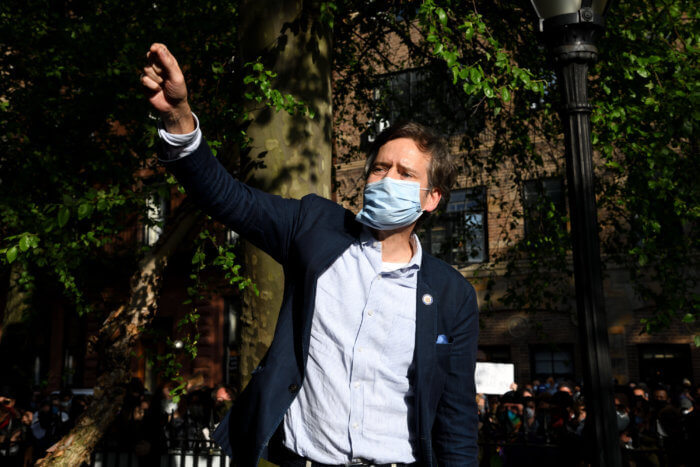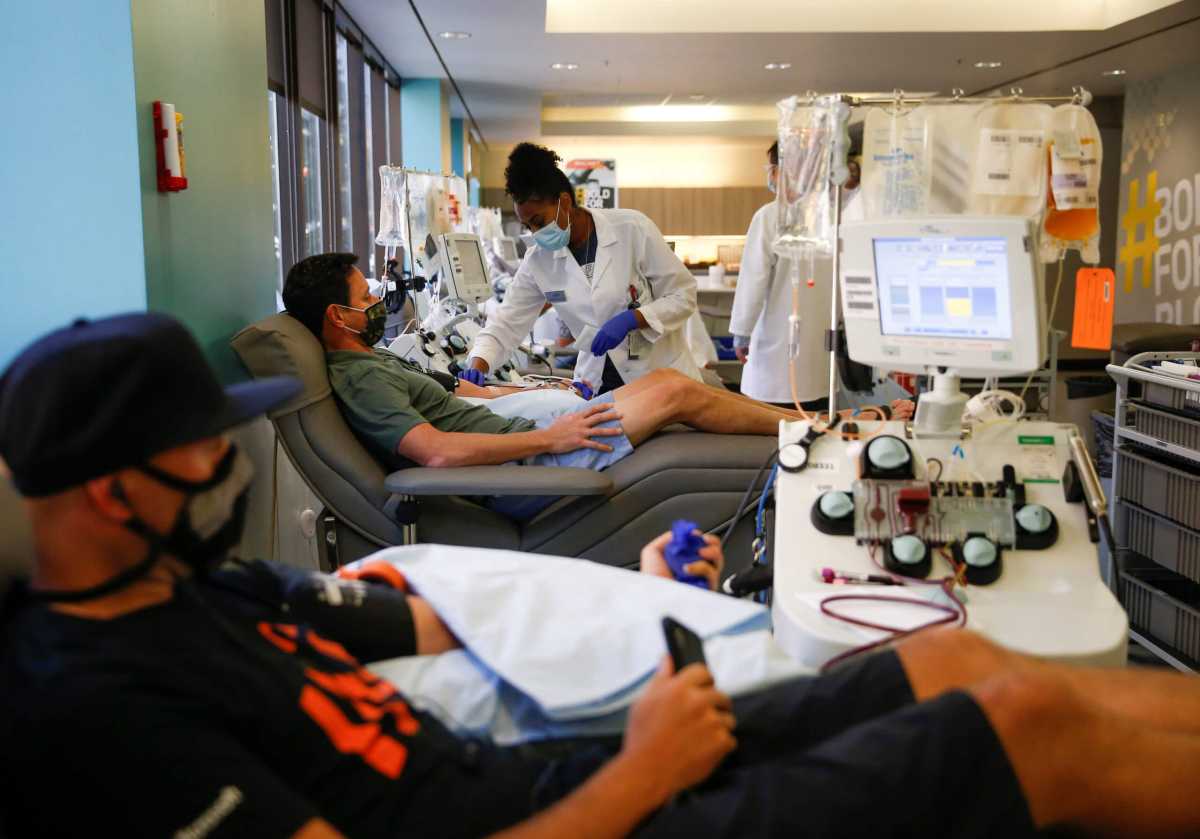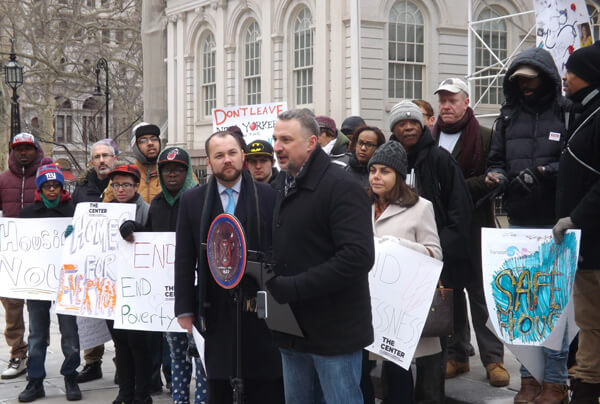Months after the Food and Drug Administration (FDA) incrementally loosened the blood donation ban targeting men who have sex with men, the federal agency is funding a pilot study that could finally do away with the outdated policy.
Three major blood centers in the United States — the American Red Cross, OneBlood, and Vitalant — are conducting the study in an effort to determine whether men who have sex with men could simply fill out a typical donor history questionnaire instead of adhering to the current requirement to remain celibate for three months in order to qualify as an eligible donor. The study will also determine whether new questions could be asked on the questionnaire, though the specific nature of those questions has not been specified.
The FDA has faced long faced pressure to do away with the discriminatory policy, which was originally implemented as a lifetime ban in 1983 at a time when the AIDS crisis sparked the initial restrictions. The American Association of Blood Banks called on the FDA to re-evaluate the policy as early as 1997, but years passed by and the ban remained intact — even in the face of blood screening technology like the Nucleic Acid Test, which can identify HIV in blood with such precision that an individual receiving a blood donation only has a 1 in 1.47 million chance of exposure to the virus.
The FDA first started to ease the policy in 2015 when the lifetime ban was altered so men who have sex with men could donate blood as long as they remained abstinent for an entire year. On April 2 of this year, the FDA unveiled a new policy allowing men to donate blood as long as they have not had sex with another man in the last three months.
But now, as the nation faces the coronavirus pandemic, the urgent need for blood donations has escalated calls for the FDA to finally allow men who have sex with men to help meet that demand without restrictions.
The pilot initiative is being labeled as the Assessing Donor Variability And New Concepts in Eligibility (ADVANCE) study. The website describes the study as “a first step in providing data that will help the FDA determine if a donor history questionnaire based on individual risk would be as effective as a time-based deferral in reducing the risk of HIV in the blood supply.”
“If the scientific evidence supports the use of the different questions, it could mean men who have sex with men who present to donate would be assessed based upon their own individual risk for HIV infection and not according to when their last sexual contact with another man occurred,” the website states.
Numerous elected officials have placed pressure on the FDA to scrap the policy. Most recently, Congressmembers Brian Higgins and José E. Serrano of New York and Judy Chu of California penned a letter to FDA Commissioner Stephen Hahn urging him to take the lead on ditching the ban.
“The ongoing — and worsening — COVID-19 pandemic has put severe stress on the nation’s supply of plasma, and it is imperative that FDA’s donor guidelines move away from reliance on harmful stereotypes to allow all healthy adults who wish to donate to do so,” the lawmakers wrote in a letter on December 18. “Outdated and arbitrary guidelines that discriminate against MSM attempting to donate plasma unnecessarily constrains its supply during a time when it is more important than ever to increase the donor pool,” the letter stated.

Out gay State Senator Brad Hoylman of Manhattan welcomed the news of the forthcoming study as he announced plans to continue shining a spotlight on the issue until the restrictions are gone. On January 12, he is planning to host a blood drive with the New York Blood Center (NYBC), a community non-profit blood bank in New York City.
“The FDA’s blood ban is outdated and wrong,” Hoylman said in a tweet. “It barred me from donating blood during a critical blood shortage this spring and is still preventing donations in our current shortage. I’ll keep fighting to end it… I’m asking LGBTQ+ allies to donate blood for those who can’t.”
NYBC praised the FDA for considering a policy change.
“New York Blood Center applauds the FDA for this newly launched study,” a spokesperson told Gay City News in a written statement. “Separately, NYBC is participating in research that evaluates risk profiles of blood donors, with the goal of supporting evidence-based change. Expanding the number of eligible donors is crucial to maintaining an adequate blood supply during the COVID-19 pandemic and beyond.”
Notably, the current policy also applies to women who have had sex with men who have sex with men, but the FDA has otherwise lacked clarity regarding whether transgender individuals are covered. The American Red Cross considers the policy to have “no deferral associated with being transgender.”
According to the study’s website, the research is slated to be completed at the end of 2021.
To sign up for the Gay City News email newsletter, visit gaycitynews.com/newsletter.




































